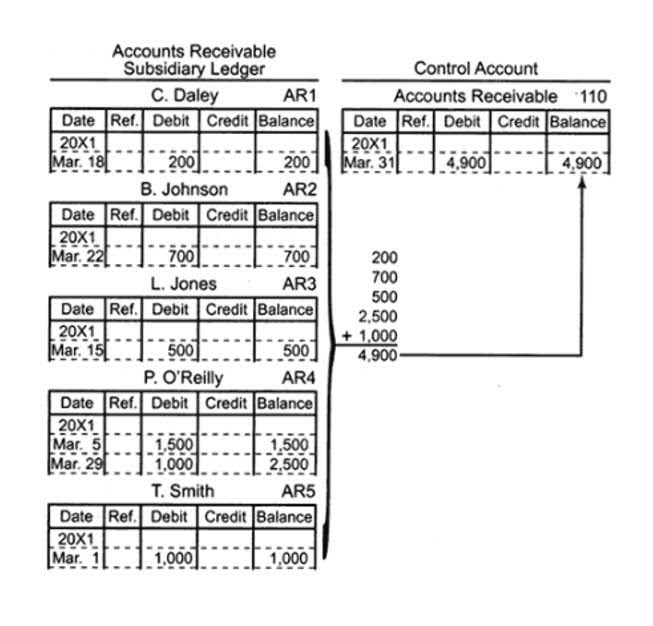Content

Banks typically try to avoid direct legal confrontation with their primary regulators. My name is Brandy Derrick and I am the owner of Legal Ease Bookkeeping, LLC. I started doing the bookkeeping for a group of small businesses that are all owned or part owned by the same person in 2001.

Although the roles of bookkeeping and accounting are different, there is a thin line to distinguish between them. In fact, some basic rules dictate how you must handle this money to ensure compliance. Many lawyers assume their bookkeeper can or should help them with their financial analysis and get frustrated when they don’t. If you understand the different roles and skillsets each position has, you’ll be able to assess what type of help they can provide to you. Once you have a strategy and budget in place, the work of day-to-day management sets in. Reviewing your finances is not an annual event completed at tax time!
Accounts Payable Services
Daily bookkeeping gives you better information about the financial state of your law firm, while monthly bookkeeping will keep you guessing. Now that you understand that bookkeeping happens first, I suggest you figure out the best way to handle bookkeeping before we move on to legal accounting. Accounting for law firms may be new or challenging to you, but it doesn’t have to be scary.

As a lawyer, when you receive cash that belongs to a client, you are obligated to hold those funds in a client trust account separate from your own money. These are commonly known as IOLTA accounts (interest on lawyers trust accounts) and vary by state (and also check with your local bar association). You recognize revenue when cash is received and expenses when money is paid.
How to choose an accountant for your firm
What’s most important is that you get the details right so that you can stay compliant with ethics rules and help your firm grow to its full potential. Both general accounting and trust accounting are necessary for your firm’s success—and integrations seamlessly tie the two areas together. Accounting for law firms becomes so much easier when you work with an accounting professional from the beginning. So, with double-entry accounting, every financial transaction gets sorted into a specific category (assets, liabilities, or equity). Once those transactions are sorted, the two sides should match.
One mistake when recording your debits and credits, and your entire balance won’t add up. Accounting software where you download transactions can help avoid this error, as can double-checking entries as you go. The most powerful solution to this problem is taking law firm bookkeeping the time to frequently update your books (or outsourcing your bookkeeping to a team that will reconcile the numbers for you). If there are any differences between the three, your trust reconciliation report should show the reason for the discrepancy.
Start by Hiring a Bookkeeper
While there are some outsourced services that offer this functionality, so far I’ve found that working with individuals and small accounting firms is better for this task. Here’s the list of tax accountants that we’ve vetted at the Biglaw Investor. Accountants typically take the books and records prepared by a bookkeeper and use them to provide business advice, prepare financial statements, and file tax returns.
- If you’re not sure what tax deductions you should be watching for, our post covering the top tax deductions for lawyers and law firms is a good place to start.
- When it comes to accounting for law firms, there’s no one “right” method (though you may be required to take on the accrual method).
- We are dedicated to keeping clients abreast of tax law changes, planning strategies and vital tax-related information.
- Someone needs to reconcile the accounts, record the entries and prepare the year-end financial reports.
- Each aspect of law firm accounting is explained understandably and concisely.
In other industries, it is allowed to keep clients’ prepayments in your operating account and use the money to fund client projects. But legal bookkeeping https://www.bookstime.com/ and accounting in law firms are different than for other businesses. If you are running a law firm, don’t make that severe mistake.
Law Firm Bookkeeping and Accounting Terms
With the accrual method, you record revenue when it’s earned and expenses when they’re incurred—whether they’re paid right away or not. This creates a better matching of costs to the revenues earned in a given month or year. It allows for more meaningful financial management that isn’t influenced by the ups and downs of cash flow. If you want your firm to stay compliant, be financially successful, and grow, you need to have an accurate and clear bookkeeping system for your law firm to follow. This could mean taking on bookkeeping tasks in-house or hiring a professional bookkeeper with experience working with law firms. To effectively manage legal accounting for law firms, it’s wise to start with a foundation that works for all aspects of running your firm.
The best solution is to open up a business credit card and record expenses on that card, ensuring that you won’t forget them even if you are keeping up with your books on a weekly or monthly basis. To make sure that your bookkeeping has accounted for this correctly, you’ll need to make sure that the balance in your IOLTA trust bank account matches the amount reflected on your books for the IOLTA account. Bookkeeping is an ongoing task that is performed daily, weekly, or monthly (if you’re adventurous).
- Cortona Resort Spa
Designed By Nealogic
- info@cortonaresortspa.it

Lascia un commento